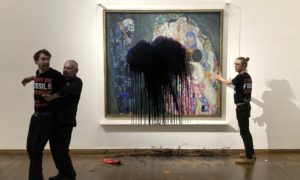Skills-focused cognitive-behavioral therapy and emotion-focused psychotherapy were equally effective at preventing relapse in patients with bipolar disorder when added to standard treatment, reports a study in JAMA Psychiatry. What affected the relapse rate more than the therapy delivered was whether the patients attended all their psychotherapy sessions and whether they had bipolar I versus bipolar II disorder.
Martin Hautzinger, Ph.D., of Eberhard Karls University in Tuebingen, Germany, and colleagues enrolled 305 adults with stabilized bipolar disorder (68% with bipolar I and 32% with bipolar II) for this comparative study. The participants were assigned to one of two group psychotherapy programs as an add-on to their usual care, which included lithium and/or other medications and routine clinical visits. The psychotherapies were as follows:
- SEKT, a skill-oriented version of cognitive-behavioral therapy that integrates elements of mindfulness and interpersonal social rhythm therapy (building healthy sleep and social routines).
- FEST, an unstructured, emotion-focused therapy that teaches participants to understand their feelings and emotional processes during personal problems to help prevent depression or mania recurrence.
Both programs involved 24 hours of therapy in a small group setting, split into four full-day sessions over five months. Participants were assessed for any depressive or manic symptoms 2 to 4 weeks after their last therapy session, and again 6 and 12 months later.
At the 12-month follow-up, 49% of participants in the SEKT group and 46% in the FEST group experienced symptom relapse, after making statistical adjustments to match the groups (the SEKT group had a higher percentage of bipolar II patients). Regardless of therapy type, individuals with bipolar II were more likely to experience relapse than those with bipolar I (61% versus 42%, respectively); individuals with bipolar II receiving SEKT had the highest relapse rate at 70%. Other factors that increased the risk of relapse included the presence of a psychiatric comorbidity and missing two or more therapy sessions.
Hautzinger and colleagues wrote that a large majority of the study participants had previous psychotherapy experience. “For them, another structured, educational, and exercise-oriented treatment (SEKT) did not provide any new information, skills, or preventive strategies, whereas the open, supportive FEST treatment allowed for personal input, mutual support, and the activation of personal resources. This might explain why FEST was well received and successful.
For related information, see the American Journal of Psychotherapy article “Psychosocial Interventions for Bipolar II Disorder.”
(Image: Getty Images/iStock/ALEKSEI BEZRUKOV)




